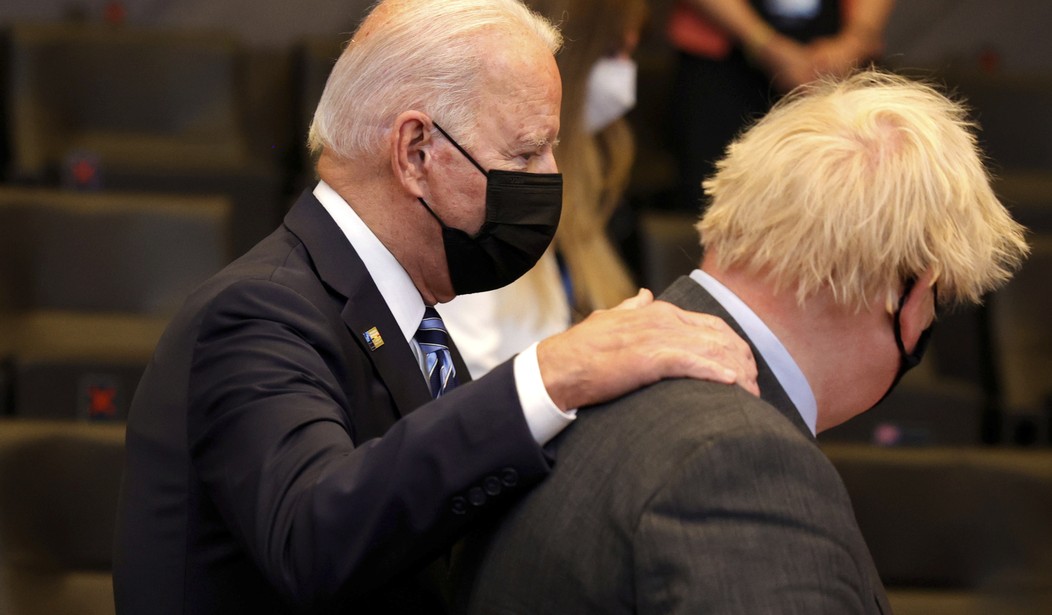In the late 1990s, visitors noticed the omnipresent portrait of an American in Beijing whose posters rivaled Mao’s for size and prominence. His name was a household word and a military rank known to all. He was, of course, Colonel Harland Sanders. Like those legends General Electric, General Motors, General Foods, and, for a brief period, Commodore 64, they conquered the world without firing a shot by making people want to buy their product.
What drives demand in most cases is product utility and customer satisfaction. Normally, the only things you are forced to purchase are items you don’t want in the first place. A CDC study showing that 74% of people infected in the Massachusetts Covid outbreak were fully vaccinated—at a time when 64% of the residents of the Bay State were fully jabbed—illustrates why so many are suffering from mandate fatigue. They were sold inflated expectations by politicians in exchange for arduous restrictions that did not materialize. The vaccines may prevent serious illness and hospitalization, but they might also have encouraged the vaccinated to go out more, indirectly leading to what many fear to be a new round of mask mandates.
The new data, published in the U.S. agency’s Morbidity and Mortality Weekly Report, also found that fully vaccinated people who get infected carry as much of the virus in their nose as unvaccinated people, and could spread it to other individuals.
A mandate is a sale by coercion. Jabs did not deliver a return to “normal” and the freedoms that were supposed to attend compliance and effort. However, they did supply — in buckets — the disappointment naturally felt by people who open a box to discover ramen noodles when the packaging shows bouillabaisse. Remember “two weeks to flatten the curve” and “reopening soon”? Well, neither do the politicians who promised them so optimistically.
In their defense, there were many things politicians and public health officials didn’t know at the time. But instead of confessing their uncertainty — saying “I don’t know” or grimly saying “I have nothing to offer but masks, lockdowns, and needles” — they often assumed a false confidence that they may have to walk back.
Successful products — like cellphones and KFC — provide immediate and palpable satisfaction to those who get them. There’s positive feedback, unlike those central planners who time and again set lofty targets only to tell the public how badly they’ve failed due to saboteurs, capitalist roaders, and deniers.
The newest progressive insult is the epithet “selfish,” which appears to mean “not doing what the experts say is best for everyone.” The fallacy here is that it discounts the effect of personal experience and feedback on behavior. The reason many people are being “selfish” about Covid is their disillusionment with the assurances and warnings issued by the politicians, or with hideously expensive policies that seem to have no decisive effect.
Today, more than a hundred years after the Great War, it is instructive to remember that at first men went over the top without prompting, then later with a lot of prompting, and finally under the threat of being shot. They became “selfish” not from some lack of moral fiber but because they learned that the experts underestimated the cost of frontal attacks. The generals did useless stuff and the privates noticed.
When the Great War was finally won, it was not because the soldiers grew less selfish but because the generals acquired the humility to learn. “If a man has good corn or wood, or boards, or pigs, to sell, or can make better chairs or knives, crucibles or church organs, than anybody else, you will find a broad hard-beaten road to his house, though it be in the woods,” Ralph Waldo Emerson wrote.
When people want the mousetraps politicians are selling, you’ll have your beaten path.
Success is a far better incentive than draconian measures. “The customer is always right” is a more successful strategy than “political power grows out of the barrel of a gun.” Today we might say: the better the product the rarer the forced mandate.
***
Books: Superintelligence: Paths, Dangers, Strategies by Nick Bostrom. If machine brains one day come to surpass human brains in general intelligence, then this new superintelligence could become very powerful. As the fate of the gorillas now depends more on us humans than on the gorillas themselves, so the fate of our species then would come to depend on the actions of the machine superintelligence. But we have one advantage: We get to make the first move.










Join the conversation as a VIP Member